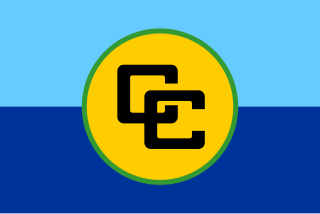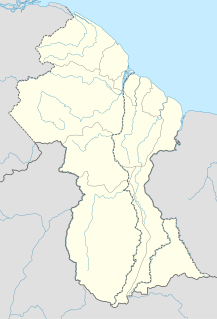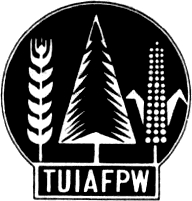Related Research Articles
A trade union, often simply referred to as a union, is an organization of workers who have come together to achieve common goals, such as protecting the integrity of their trade, improving safety standards, and attaining better wages, benefits, and working conditions through the increased bargaining power wielded by solidarity among workers. Trade unions typically fund the formal organization, head office, and legal team functions of the trade union through regular fees or union dues. The delegate staff of the trade union representation in the workforce are made up of workplace volunteers who are appointed by members in democratic elections.

The National Labor Relations Act of 1935 is a foundational statute of United States labor law that guarantees the right of private sector employees to organize into trade unions, engage in collective bargaining, and take collective action such as strikes. Central to the act was a ban on company unions. The act was written by Senator Robert F. Wagner, passed by the 74th United States Congress, and signed into law by President Franklin D. Roosevelt.
Freedom of association encompasses both an individual's right to join or leave groups voluntarily, the right of the group to take collective action to pursue the interests of its members, and the right of an association to accept or decline membership based on certain criteria. It can be described as the right of a person coming together with other individuals to collectively express, promote, pursue and/or defend common interests. Freedom of association is both an individual right and a collective right, guaranteed by all modern and democratic legal systems, including the United States Bill of Rights, article 11 of the European Convention on Human Rights, the Canadian Charter of Rights and Freedoms, and international law, including articles 20 and 23 of the Universal Declaration of Human Rights and article 22 of International Covenant on Civil and Political Rights. The Declaration on Fundamental Principles and Rights at Work by the International Labour Organization also ensures these rights.
A political organization is any organization that involves itself in the political process, including political parties, non-governmental organizations, and special interest advocacy groups. Political organizations are those engaged in political activities aimed at achieving clearly-defined political goals, which typically benefit the interests of their members.
Labor rights or workers' rights are both legal rights and human rights relating to labor relations between workers and employers. These rights are codified in national and international labor and employment law. In general, these rights influence working conditions in relations of employment. One of the most prominent is the right to freedom of association, otherwise known as the right to organize. Workers organized in trade unions exercise the right to collective bargaining to improve working conditions.
The United Force is a conservative and economically liberal political party in Guyana. It currently has no representation in the National Assembly and is led by Marissa Nadir.
Hubert Nathaniel Critchlow is notable as the founder of the modern trade union movement in Guyana.
Social movement unionism (SMU) is a trend of theory and practice in contemporary trade unionism. Strongly associated with the labour movements of developing countries, social movement unionism is distinct from many other models of trade unionism because it concerns itself with more than organizing workers around workplace issues, pay and terms and conditions. It engages in wider political struggles for human rights, social justice and democracy. Social movement unionism grew out of political struggles in developing countries and was theorized as a distinct industrial relations model in the late 1980s and early 1990s.

The CARICOM Single Market and Economy, also known as the Caribbean Single Market and Economy (CSME), is an integrated development strategy envisioned at the 10th Meeting of the Conference of Heads of Government of the Caribbean Community (CARICOM) which took place in July 1989 in Grand Anse, Grenada. The Grand Anse Declaration had three key Features:
- Deepening economic integration by advancing beyond a common market towards a Single Market and Economy.
- Widening the membership and thereby expanding the economic mass of the Caribbean Community.
- Progressive insertion of the region into the global trading and economic system by strengthening trading links with non-traditional partners.

The All-China Federation of Trade Unions (ACFTU) is the national trade union center of the People's Republic of China. It is the largest trade union in the world with 302 million members in 1,713,000 primary trade union organizations. The ACFTU is divided into 31 regional federations and 10 national industrial unions. The ACFTU is the country's sole legally-mandated trade union, with which all enterprise-level trade unions must be affiliated. There has been dispute over whether ACFTU is an independent trade union or even a trade union at all. It directs a public college, the China University of Labor Relations.
The Lao Federation of Trade Unions is the sole national trade union center in Laos. It is directly linked to the Lao People's Revolutionary Party, the ruling political party in Laos, with the salaries of LFTU officers being paid by the government.

Enmore is a village in the Demerara-Mahaica region along the coastal belt of Guyana. It is about two square miles (5.1 km2) in size and has a multi-ethnic population of 1,002 as of 2012, with large concentrations of Indo-Guyanese.

Agriculture in Guyana is dominated by sugar and rice production. Although once the chief industry, is has been overshadowed by mining.

Women in Guyana are a cross-section of Guyanese society whose numbers have fluctuated with time. A country with primarily Indo-Guyanese, Afro-Guyanese and Amerindian women, Guyana has also been home to women of European or Chinese descent. The country has had a female president, Janet Jagan. Although it is part of South America, Guyana is culturally and historically aligned with the Commonwealth Caribbean and is often compared to Trinidad and Tobago.

The Trade Union International of Agricultural, Forestry and Plantation Workers was a trade union international affiliated with the World Federation of Trade Unions.
Mustapha Zulfikar is a Guyanese politician. He is the current Minister of Agriculture in Guyana. He was appointed minister on August 5, 2020 by President Irfaan Ali.
The Garment and Allied Workers' Union of South Africa (GAWU) was a trade union representing clothing workers in South Africa.
Trade unions in Grenada first emerged in 1913 with the formation of the Grenada Union of Teachers. In 1920, the Grenada Association (GA) was formed in response to growing unemployment due to the return to the island of demobilised soldiers from World War One and the completion of the Panama Canal. However, the GA proved ineffective and was renamed the Grenada Workers' Association (GWA) in 1921. In 1931, the GWA was able to successfully mobilise against the introduction of price rises on milk and tobacco, basic goods essential to workers, and following further demands, in 1933 trade unions were made legal. However, following legalisation the GWA split in two; in 1933, the Grenada Workers Union and the Grenada General Workers Union were registered.
The General and Allied Workers' Union (GAWU) was a general union in South Africa.
The General Agricultural Workers' Union (GAWU) is a trade union representing workers in the agriculture sector in Ghana.
References
- ICTUR; et al., eds. (2005). Trade Unions of the World (6th ed.). London, UK: John Harper Publishing. ISBN 0-9543811-5-7.